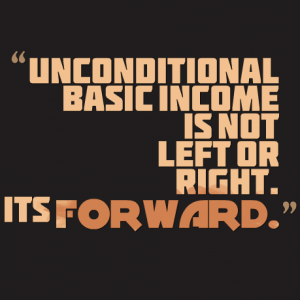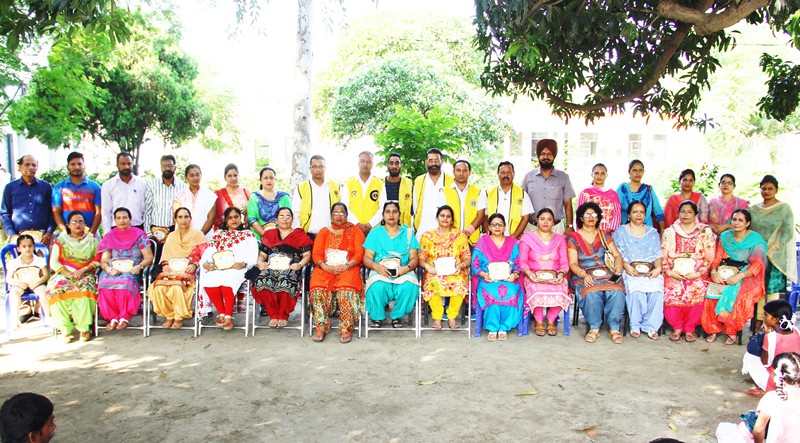
The recent demonetisation has spurred the fears of decreased demand, i.e. low circulation of money supply as one of its effects, especially by the erstwhile hoarders of black money. Lower money supply can impact GDP growth by reduced consumption expenditure in the near term as there is a temporary liquidity crunch because of the government strictures. The government and the banking system might accumulate a huge sum of deposits (depends on how much old currency is not exchanged).

We are facing a serious threat of low consumption expenditure, the signals of which are already in the air. So, how can we fight this issue? The answer is ‘Universal Basic Income’.
 What is Universal Basic Income (UBI)?
What is Universal Basic Income (UBI)?
A Universal Basic Income is an income unconditionally granted to all on an individual basis, without means test or work requirement. It is a form of minimum income guarantee that differs from those that now exist in various European countries in three important ways:
- It is being paid to individuals rather than households;
- It is paid irrespective of any income from other sources;
- It is paid without requiring the performance of any work or the willingness to accept a job if offered.
Main features of Universal Basic Income:
- It is Universal and not targeted. In the Indian context, this makes sense because of the less-than-satisfactory experience with targeting welfare services. This would not only be more appropriate; it will also reduce the burden of the bureaucracy in so far as it is engaged in identifying the deserving beneficiaries of any targeted programme.
- Another important feature of Universal Basic Income is cash transfer in lieu of in-kind transfer. There are standard arguments in favour of cash transfers over in-kind transfers (food stamps or grains provided through the Public Distribution System) as they are supposed to be much less market-distorting than in-kind transfers.
- Universal Basic Income is unconditional. Cash transfers are not tied to exhibiting certain behaviour, and the people are free to spend the cash as they want. An example of conditional in-kind transfer in India would be the mid-day meal scheme, where the meal—an in-kind transfer—is conditional upon attending school.
Why is this the right time for Universal Basic Income?
- The estimated budgetary requirements for providing UBI to all adults (roughly 69% of the population) is in the range of 11% of the GDP amounting to Rs11,000 billion.
- One of the main stumbling blocks was the need to rationalise subsidies which accounted for 14.4 per cent of the total expenditure of the central government and use the savings thus generated to provide a UBI. But now, the fiscal space that has presented itself due to demonetisation is an opportunity that should be utilised and it is that rare occasion when the imperatives of economic theory (to buoy up consumer demand and start on the path towards a long-term rationalisation of subsidies) and political willingness coincide perfectly.
 A gradualist approach will help recalibrate the Universal Basic Income in a manner suitable to the challenges that can crop up in its implementation. If the present demonetisation exercise is the first step in the long road to a cashless economy, then transferring amounts for the UBI will be an assured progression in the journey. The monetary behaviour of individuals remains unchanged over very long periods of time. To actualise the move towards cashless transactions, the government has to encourage making transactions through their accounts using facilities such as RuPay, which are add-ons to the Jan Dhan accounts. Implementation of the UBI using the fiscal resources freed by demonetisation will be the manna that government provides for its needy citizens.
A gradualist approach will help recalibrate the Universal Basic Income in a manner suitable to the challenges that can crop up in its implementation. If the present demonetisation exercise is the first step in the long road to a cashless economy, then transferring amounts for the UBI will be an assured progression in the journey. The monetary behaviour of individuals remains unchanged over very long periods of time. To actualise the move towards cashless transactions, the government has to encourage making transactions through their accounts using facilities such as RuPay, which are add-ons to the Jan Dhan accounts. Implementation of the UBI using the fiscal resources freed by demonetisation will be the manna that government provides for its needy citizens.












